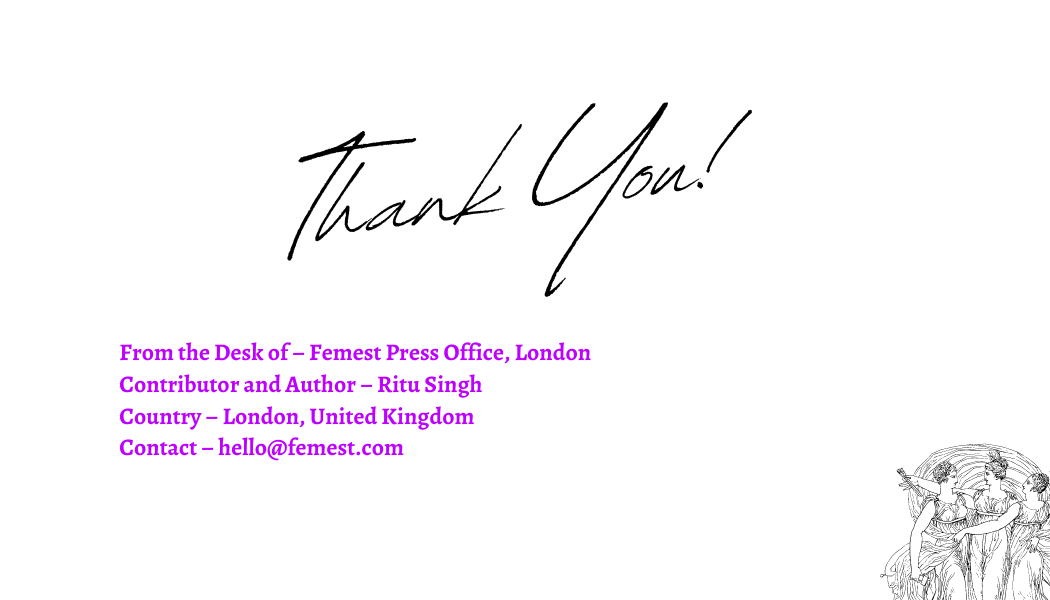A Woman Thriving in a Man’s World: The Journey of a Successful Producer and Label Founder
Simina is a leading figure in the techno scene, she shares her path from DJ to successful producer and label founder, reflecting on her artistic journey, the evolution of her techno style influenced by diverse musical genres, and the challenges and triumphs of navigating the dynamic world of techno, particularly as a female artist and balancing motherhood with a thriving career in the industry
Can you share more about your transition from being a DJ to a successful producer and label founder?
Of course! I started experimenting with Ableton in my mid-20s while learning to mix. I had borrowed some decks from a friend and had a basic setup with an Xone:92 I’d saved up for with money from my corporate job. All of this was happening at my tiny lakeside apartment in Toronto in 2006.
So, the DJing and the producing started around the same time. After University, I was working as a Print Production Manager at the mega advertising agency, Publicis, and every free minute outside of my very demanding corporate job was dedicated to learning to mix and figuring out my now-favourite DAW.
I was field sampling and distorting everything I could record on my digital recorder, and, once a week, my buddy Stephane Vera (the mastermind that is Technostep) would come over and school me on some new VST.
My passion for electronic music had piqued many years before. Still, it wasn’t until I was part of the Toronto techno scene that I took to the other side of the industry—I had been a partygoer for years, having been raving since the 90s Toronto Jungle era, but sometime around my 25th birthday is when I decided I wanted to be the one making the music instead of just dancing to it.
I founded Kuukou almost a decade later (in July 2016), years after moving to Berlin (in 2008) and releasing my first record, “Mukluks & Ponytails,” on Susumu Records in 2010. I discuss the development of Kuukou in more detail down below.
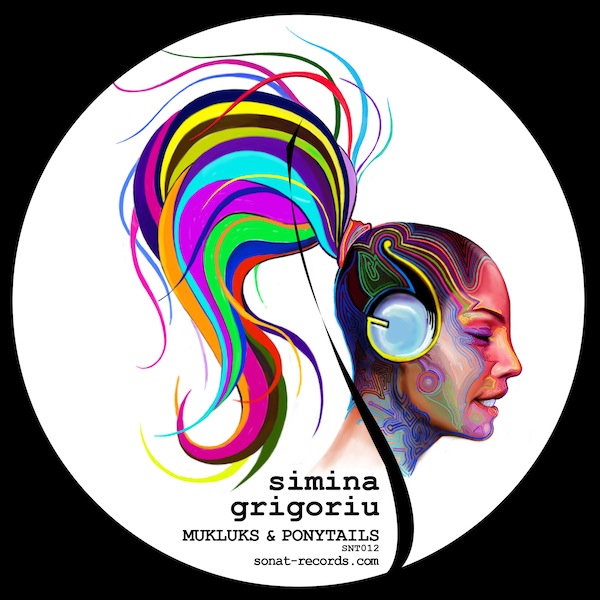
How do your diverse musical influences, from classical violin to hip hop, shape your distinctive techno style?
I am a musical anomaly. I love all genres, and since I started producing music in 2006, I have been incorporating samples of all types of music into my productions; into my sets, not so much, but the array of samples I’ve used in my productions varies across the board.
I’ve used vocals from songs released in the 1930s, created bass lines from hardcore hip hop, and melodies from rock and heavy metal. Nothing is off limits here except that I had no rights to those samples and, therefore, had to bastardise them heavily. It’s about experimenting and finding a groove among all elements.
I’ve also learned that distorting one particular sample to create multiple elements of a track can achieve harmony only by doing precisely this, because each component has the same source. You can make a bass, kick, hat, pads, etc., from one good sample, and the result is magical because its original source.
What motivated you to establish Kuukou Records, and what do you aim to achieve with the label?
Kuukou Records was founded soon after I had my first baby, Isabella Amelie. I produced about ten tracks during my pregnancy to release as an album. Still, after careful consideration, I nixed the idea and decided to found the label, feeding them out slowly to the world as EPs.
I’d always wanted to create a platform for artists like myself to release music on our own terms, and I feel I’ve done that with Kuukou. It wasn’t easy at the beginning. I had no idea how to run a label, and I was challenging EVERYTHING my label managers suggested (as a Taurus, I can be hard-headed sometimes, and I often thought I knew best, despite the fact that they were an agency that managed labels for a living). But eventually, we found a nice groove.
I learned to listen to their expertise, and I also learned to let go of whatever preconceptions I had about how a label should be run, having yet to gain prior experience in doing just that. Like any solid relationship, the magic is in the communication.
I now work with two incredible people who run my operation like a German train schedule while I focus solely on A&R. It also took, like, five years to start breaking even, so there were MANY moments of doubt when I wanted to quit it all and free up my time for something more “profitable,” but I’m glad I stuck with my vision because I love my baby techno label, as I call it, and I feel we’ve created something special with Kuukou, which, by the way, translates to ‘Airport’ in Japanese.
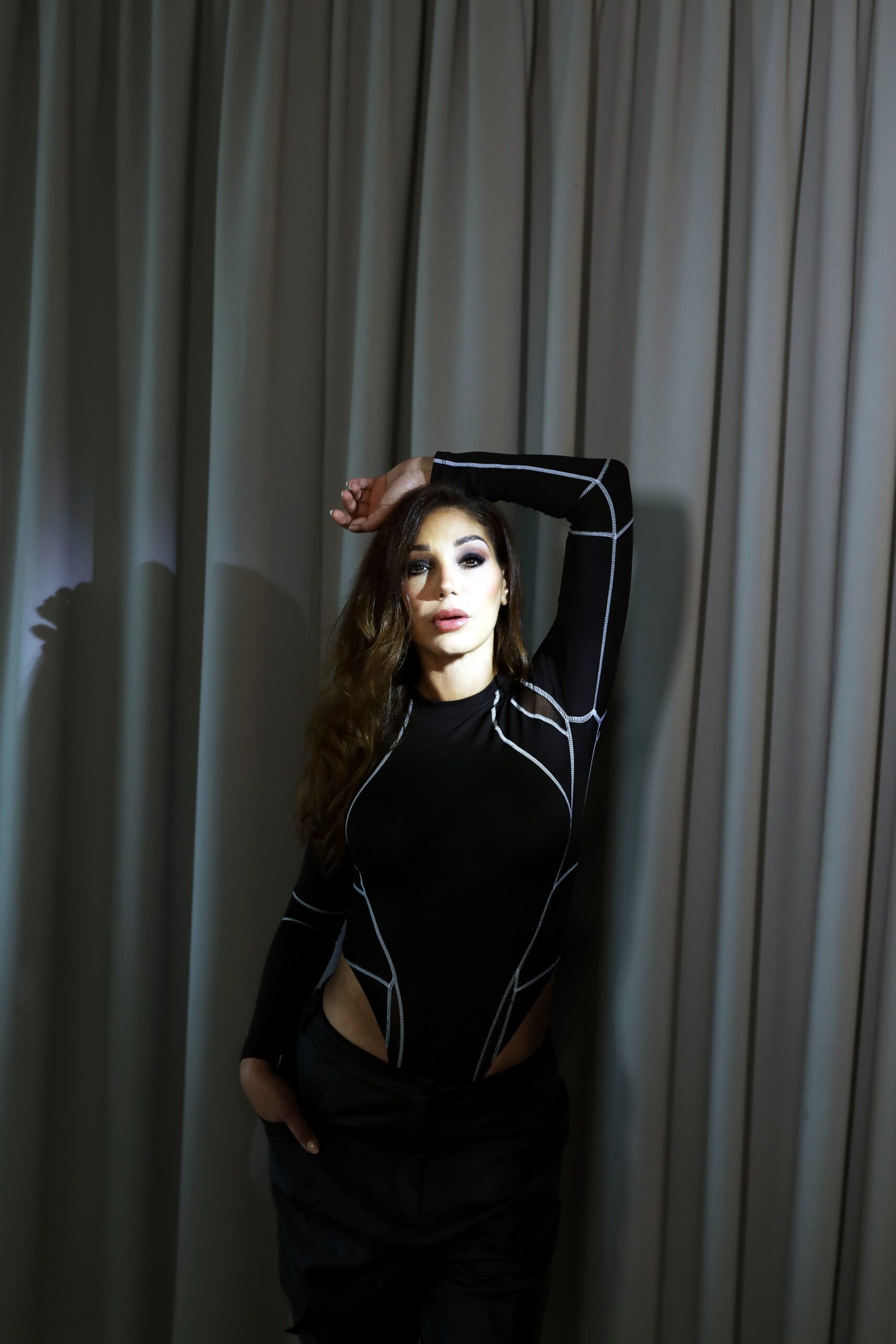
A story for another time. Actually, it’s a short one. So here we go… When I was in Japan in 2012, I kept hearing this word over the intercom at the airport, and I thought it was adorable. I had no idea what it meant until I asked an airport employee what it meant.
This was the first spark. I’m a bit of a Japanophile and think I was Japanese in a previous life (a proper story for another time), but yeah, the word itself, my love for all things Japanese, and the sheer amount of time I spend in airports travelling around for gigs, it just made sense. I like things that make sense.
With Kuukou, I’ve had the opportunity to do things my way, and by doing that, I’ve also created space for lesser-known artists to showcase their music to the world. Part of my vision was to give opportunities to artists who wouldn’t otherwise have the chance to catch a proper break in this very strange techno industry.
It’s sad, to be honest, because where it was once about the music, today it’s about image and sales, and that has left a lot of artists with no opportunities actually to reach an audience. I’m trying to change that with Kuukou. Yes, we have to stay profitable; otherwise, we have nothing to operate on, but we also invest in artists with good souls and positive intentions behind their music.
I was given opportunities in my career, and I’ve had people take chances on me, not because of who I used to be married to but based on gut feelings and good vibes. I wanted to—and still do—pay that forward. And we have lots in store for you in 2024. Just wait.
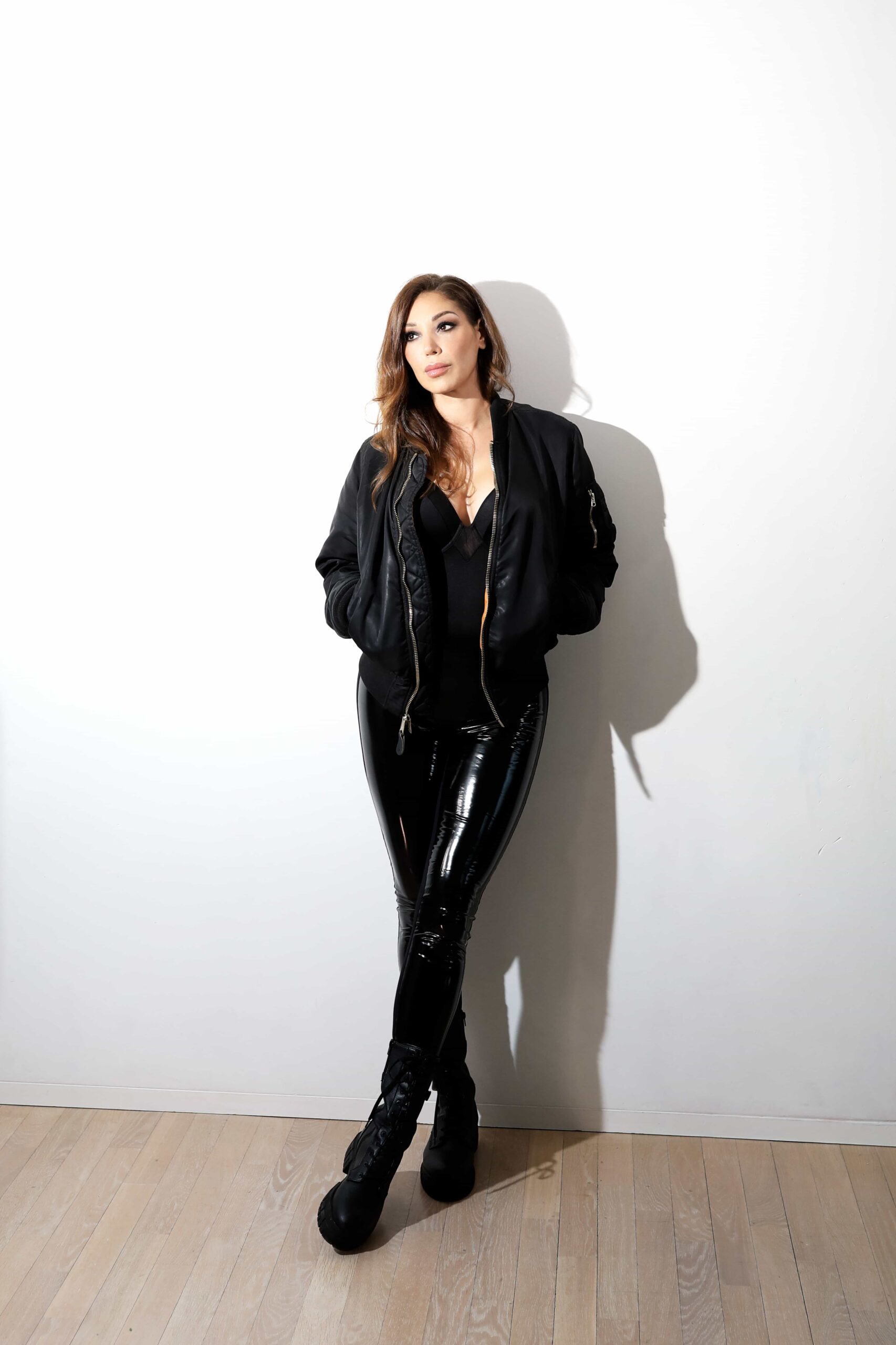
Could you elaborate on the significance of your album “Exit City” and its impact on your career?
I produced Exit City in 2012. I wanted to put out a full-length album, and I had spent the better part of six months working 18-hour days in the studio to make that happen. I accepted no help and disregarded everyone’s advice because I felt adamant about doing it alone. I had to prove myself. Maybe it was insecurity, and perhaps it was cause I’m a Taurus, but I locked myself in that room and came out when I was good and ready. I slept for two days after studio sessions and then went back in.
The sound is entirely different from what I produce today (evolution, growth, and whatnot), but I still love it. I worked with my good friend MAMA (Simone Ogunbunmi) on two tracks (her beautiful voice is like soft, melted butter), and I produced one track with my brother, who contributed the guitar leads.
The titles are very personal to me, and my favorite is Luminitza, a track dedicated to my mother (Luminita is her name, but I added a “z “in there so the non-Romanians could pronounce it correctly), and I also sing on that track. I sing on a lot of tracks but you’d never know it.
The name ‘Exit City’ is a tribute to my in/out of Berlin lifestyle, as I was on tour all the time and had somewhere between 6-9 gigs every month. So I was “exiting” the city all the time. That has changed, too. I now cherry-pick my gigs as I believe in quality over quantity, and I have already paid my dues, having played probably every German village on the map. Now, it’s about better gigs, not more gigs, so I can free up my life to spend quality time with my two daughters and simply “be.”
I love touring, but there were a few years there when I felt like I was on autopilot. I was burnt out and had lost the drive for what was originally a great passion. Fast forward to today, and I have that passion back. Exponentially. I want to enjoy what I do, and those years when it was all packed so tightly, something that was previously driven by passion had started to feel like a burden.
After 16 years of DJing, I’ve earned the right to slow down. As a mother, I NEEDED to slow down. It’s about finding a balance between the things I love, need, and want to do—with my beautiful daughters at the forefront of it all.
![2012.08.24 [SUS003] EXITCITY](https://femest.com/wp-content/uploads/2012.08.24-SUS003-EXITCITY.jpg)
How do you balance your roles as a mother and a successful artist in the techno industry?
The short answer? With an incredible support system and a solid set of personal values. I have a wonderful nanny who is there for us when I am on tour, and after working in this industry for as long as I have, I am happy to know that I have the luxury of choosing my gigs carefully.
I never really take extra days off, and my children are my number one priority. I’ve never missed a birthday or a special occasion, and I NEVER play around Christmas or New Year’s Eve. I want to be there with them for all of that. I set up adventures and holidays for us between my summer gigs, and when I’m home, I am fully present.
Their childhood will not suffer at the hands of my career. I know that when I’m old and grey I will not regret having chosen my loved ones over whatever gig or opportunity I had at the time. And I communicate with them. It’s important to me that they see Mommy chasing her dreams and doing what she loves because I hope they will do the same one day.
Now is the time to instil those values, and what kind of mother would I be if my work was always more important? Yes, important it is, but not more than they are. It’s not ideal that my work takes me away precisely when they have free time (weekends), but that’s also why I don’t play every weekend.
And with every year that passes, I know I’m making the right decision because I get to watch them grow up. I can’t tell you how many gigs I have no recollection of. I go. I play. I pour my heart and soul into those shows, and several months later, they’re just one of many extraordinary opportunities I’ve had to showcase my work.
I like to say that I love what I do, but “techno won’t keep me warm at night,” so as much appreciation I have for my fans and the career I’ve grown to have over the last decade and a half, my family—these little humans I hold so dearly in my heart—will always come first. And they know that.
What challenges have you faced as a female artist in a predominantly male-dominated field, and how have you overcome them?
I want to start by saying that I absolutely love that more and more women are finding it within themselves to do something that was usually done by men for so long. It’s empowering to see girls and women interested in making music on a technical level. I also find that there absolutely is a stigma associated with being a female DJ in today’s world.
For the most part, no, but for many (especially very macho men) being a woman who is technically capable is like a phenomenon. It’s not, but is perceived to be. Many people are captivated by the fact that a woman could do this job, and they are fascinated by the fact that we are female more than the music we bring to the stage. It’s an unfortunate part of the phenomenon, if I’m honest.
Sex sells, and with the rise of social media, it’s gotten completely skewed. Many years ago, this was hardly the case. Women like Ellen Alien, Mistress Barbara, Miss Kitten, Honey Dijon (and many more) were booked for their talent, not because they are women. Yes, they’re all super hot, too, but that was never the first criterion.
Social media has become such a driving factor that any girl with a sexy look and the proper management/marketing team can generate a massive following almost overnight. It’s not to say that they’re talentless, but appearance and social following have become huge factors in a most promoters’ booking decisions.
Decks can be synced and really, the magic is in the music. I see a lot of artists with excellent t4echnical skills who have no idea what proper techno is and sorry, that’s a massive turn off for me. Press kits? Forget about it. Nobody checks that anymore. I keep mine current in a folder on my Dropbox, and it looks impeccable.

My biography is translated into eight languages, my discography and every gig I’ve ever played are laid out in perfect format in a 22-page PDF, and I can tell you that the first thing any event company will check is your Instagram. Followers and content fuel decisions because, at the end of the day, tickets need to be sold, costs need to be recuperated by booking the most popular acts, and everyone wants to make money.
I also find that female DJs are automatically judged—at best—just slightly more than our male counterparts. People are quick to think you either suck (you’re there because of how you look or because you slept away to the top) or because you’re super talented on the decks cause how else could you be doing a “man’s job.” The world is not as progressive as we think, or would like it to be. Trust me. I’ve seen it firsthand, which is why I make sure I’m good at what I do—from all angles. I will give you no room for error or judgment.
My good friend Sylvie Miles (together with Luna Lucci) just released a track about precisely that. It’s called “Girls Can’t Produce,” and the lyrics include a line about “Boys Run The Industry.” It’s a parody because she’s a woman, so she’s poking fun at the top dogs, but she’s not wrong. The track is fantastic, by the way, and I’ve been playing it at every show since she mastered it and sent it over cause it’s amazing and deserves to be heard. And because she deserves it. If you don’t know Sylvie Miles, you must get on that right away. She’s an incredible artist and a stellar human being. Love u, BB x
One thing I can say is that I genuinely detest the hype behind being a female DJ, and I absolutely hate the title DJANE! It’s actually in my contract that promoters are forbidden to use the word DJANE in any way, shape, or form, anywhere in press or promotion in referral to me, not only cause it’s a shitty word but because, like, why you gotta shout out to my lady parts, bro?? WTF?? If you have a passion for music and want to learn how to do this—be it for fun or for a living—it should make no difference what’s between your legs. Talent is talent. Basta.

Can you discuss the inspiration behind your recent releases, particularly the double-sided “The Ceremonialist / La Chacruna, ” “Flight Tracker, Global Soldier and “Iron Angel”?
‘The Ceremonialist’ / ‘La Chacruna’ on We Are the Brave is yet another tribute of mine to the God-blessed Mother Ayahuasca. I happened to sign this record in December 2023, and a few weeks later, I found out that I’d be playing in Montevideo, just a few short hours away from where my Shaman lives with his tribe. It was my South American debut, and by some miracle of the Universe, the release and the gig landed a week apart.
This made for some fabulously fitting content on my socials, and both tracks ended up being hits (according to sales, audience feedback, and the awesome playlists in which we landed). I am proud of them both, and they work wonderfully on the dance floor.
‘Flight Tracker’ on Drumcode is dedicated to my love of flying, and it was my debut on Adam Beyer’s iconic label last December. I’ve known Adam since I lived in Toronto, so this was a great honour, and I am genuinely thrilled to be part of the Drumcode roster. After my DC release last December, I went on to release ‘Global Soldier’ on the legendary imprint and will soon be releasing a four-track EP called ‘Declare Me’ on Drumcode LTD this July.
I’ve been rotating all four tracks at my shows, and they are getting some pretty good traction. I like to test stuff out. m
‘Iron Angel’ is a track I made for my daughter, Victoria Rosalie (Rosie), released as Kuukou Records’ 100th EP. The very first release on Kuukou was called ‘Techno Monkey’ / ‘Ninja Princess’, and the latter title was a tribute to my first daughter, Isabella Amelie (Izzy), who was a one-year-old at the time.
She was a ninja in my belly when I produced the track and she is a a full fledged ninja now. It’s magical and terrifying to see her flip and jump the way she does, but it is who she is, and I embrace all parts of her, including her inner acrobat. Life imitating art or the other way around, I suppose. I don’t know, and, it doesn’t really matter. She is who she is and I’m so darn proud of her.

What do you find most fulfilling about performing at major festivals and nightclubs around the world?
Easy. Stomping feet. Hands in the air. Smiling faces and booties shaking. If they’re happy, I’ve done my job right. Also—cause you asked—it’s up on those stages where I feel the most free to express myself. Nobody can fuck wit me when I’m doing my thing. What are you gonna do? Pull me off the stage for smoking a cigarette? Playing what I want? Nahhh… Freedom is a BIG part of it. If I can be me, fully and wholly, and they love my music, well, mission accomplished!
I can compromise a lot of things in life. My music is not one of them. I can’t tell you how many big gigs on Ibiza and the likes I’ve declined because they wanted me to open for some act that resonated in no way with what I’m doing. They wanted me to play a “different” style.
Thanks for the flowers, but you can keep your money, bro. I’m definitely not your girl if you’re asking me to change a big part of who I am just to fit in with your lineup. This is authenticity and I will not apologise for it. There’s power in holding space for what you love; for who you know you are. That’s where that lives.
How do you select artists to collaborate with on Kuukou Records, and what qualities do you look for in their music?
A few things come to mind.
- Sound/Style. I have a lot of respect so many artists I could never properly invite onto the label because the musical direction simply doesn’t fit. This thing we’re doing here is not a free-for-all. We are not a one-stop-techno-shop. I search for artists not by relevance but by sound. Like with a puzzle, the pieces have to lock right in. We could diversify, just a little, left and right, but not so far out that it changes our trajectory.
- Passion. I look to see how they promote their music, talk about it, and present themselves in the world. If passion is behind their projects and the music fits, I will back them 100%. We strive to work with artists who want to grow, and we are happy to support them in doing exactly that.
- Current Profile. I so often find artists whose music I like, but if they have absolutely no social media presence and no intention to push the record on their end, it’s going to be a pass from me. Yes, it’s about the music, but at the end of the day, you have to be willing to do your part, and that means more than submitting a pre-master and letting us fly with it. We invest time and money into each artist and each release, so the effort has to be reciprocated; otherwise, the project will never really take off. We’re looking to create a community and that requires consistency and drive of all parties involved.
- Discography. We look at where the artist has previously released it, and if we find it resonates with what we’re doing, we will reach out. Even if you suck at social media, if you’ve released on some solid labels and the tracks are good, I’m in.

In what ways do you see the techno genre evolving, and how do you position yourself within this evolution?
BIG QUESTION. Okay, well, music is always evolving. I personally don’t quite understand this trend toward hard techno, but I accept it for what it is. It’s a new gen thing. It’s not terrible or anything; it’s just not what I bring to the table. I like hard, industrial, and sometimes aggressive techno. But I also feel that music needs to feed your soul, and for me, the hardest, most aggressive techno is just not capturing my heart.
I also see a trend toward Trance and PsyTrance, which is now becoming super popular among the younger generation. Also, I would never go in this direction for my shows, but I do understand it. It reminds me of the 90s, when there were only three rooms in a rave: Jungle, Rave (House), and Trance. I like the synths and vibe, but it’s definitely not a style I would incorporate into my sets. I’m the rumble bass, thick kick, straightforward techno type girl.
As for the evolution of electronic music, I have no idea where it’s going, but I’m not ready to give trance another chance (at least not on my stage). My last love of trance was on a Batman Forever CD, and it was a track by Paul Oakenfold. Love the track…could never play it. Now that I think about it, I kind of feel like making a stripped-down edit of it to end my sets. Let’s see….
Could you share some highlights and challenges from your experience with Kuukou Records since its inception in 2016?
Yes! Well, we’ve come a long way. I’ve had the pleasure of inviting some of techno’s biggest stars on my little label and giving opportunities to lesser-known acts that would otherwise have none. I’ve released my own music and had control over how that came out, and now, with the label growing and getting some much-deserved recognition, we can keep going.
The direct challenges have been related to financials in that we often release music that brings in minimal sales, but guess what? I don’t care. I release music I love, and I love to support artists based on their output rather than based on a potential revenue stream they might bring in.
Yes, we must stay afloat to keep the label running, but money isn’t everything. Most mid-level artists could not survive off of royalties anyway. It’s about fuelling a platform to keep the music alive and if I can help do that in some small way, I’m happy.
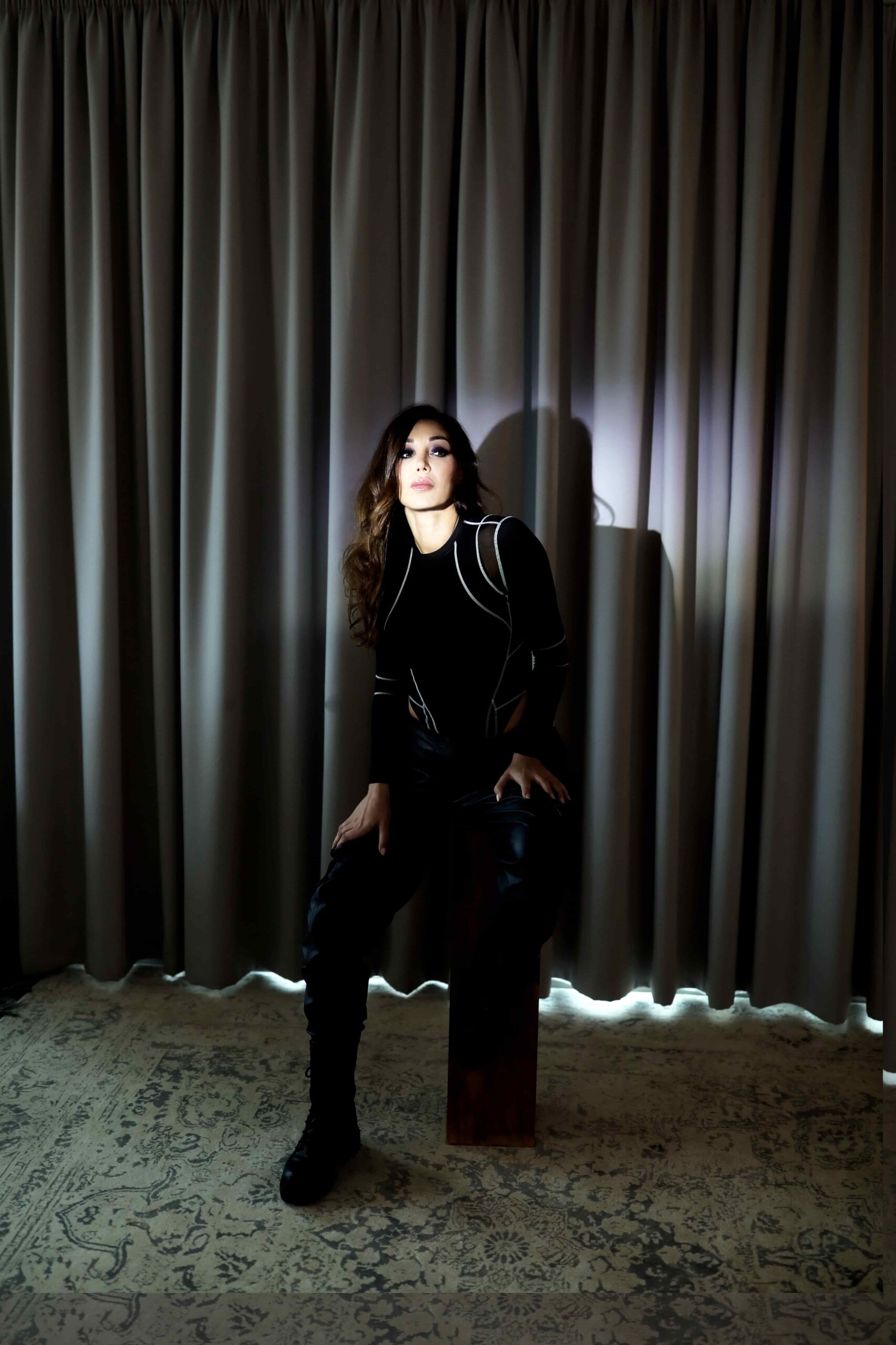
What upcoming projects or collaborations can your fans look forward to in 2024?
Lots coming down the pipeline. Aside from a full roster of releases on Kuukou (we’re well into the 2024 release plan), I have releases on Andre Crom’s OFF Recordings (Intuition Authority – just released), Christian Smith’s Tronic (confirmation Bias – 28.06), Drumcode LTD (Declare Me EP – 12.07), Rave The Planet (Resident Frequency – Release date TBA), and my debut on Dense & Pika’s Kneaded Pains imprint (Instruments of Society / Pillars of Virtue – 27.09). I also have a collaboration with one of my musical heroines coming out this year.
The one and only Miss Kelli Ali of The Sneaker Pimps has lent her voice to one of my productions, and though the track is ready, we are not ready to disclose the title or its release date. But it’s coming. I’m super excited about the rest of the year, and I look forward to coming to play for all of you. Thank you all for your continued love and support. I will continue to do my best and bring love and positivity, alongside booty-shaking beats, to the dance floor.
